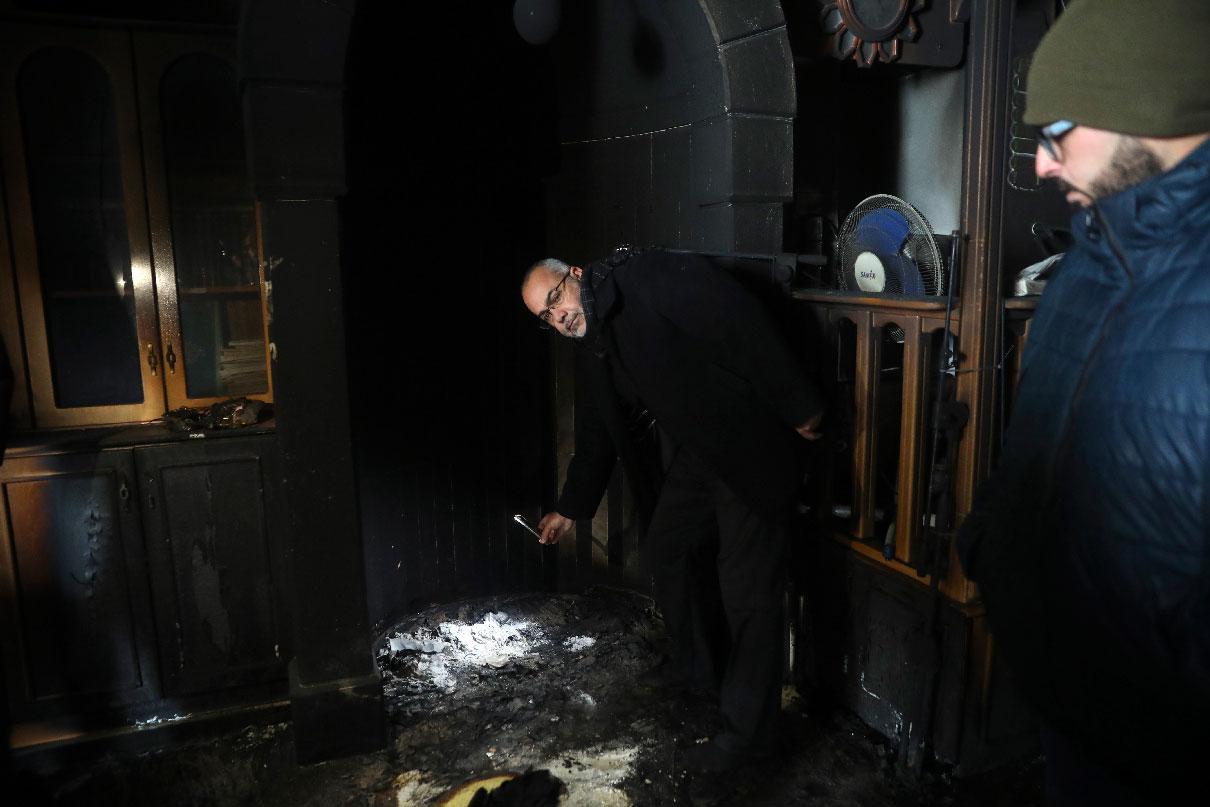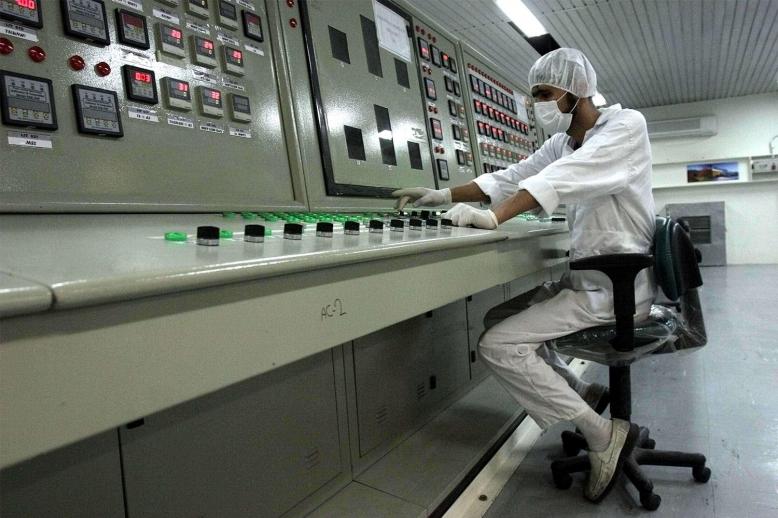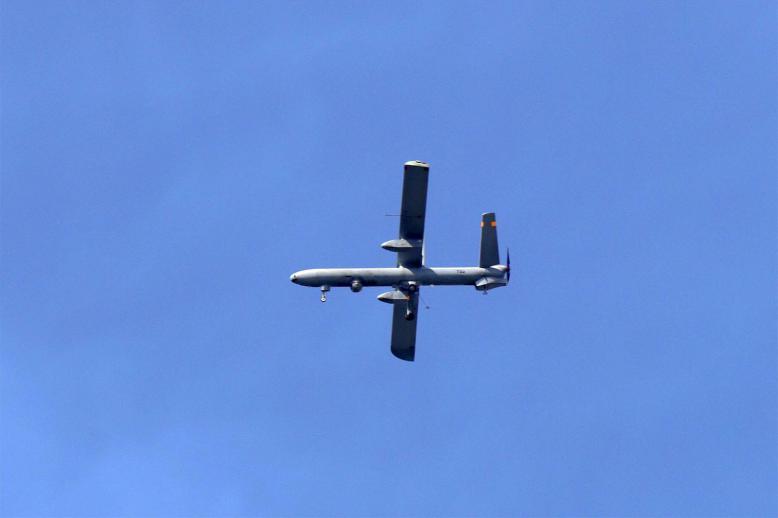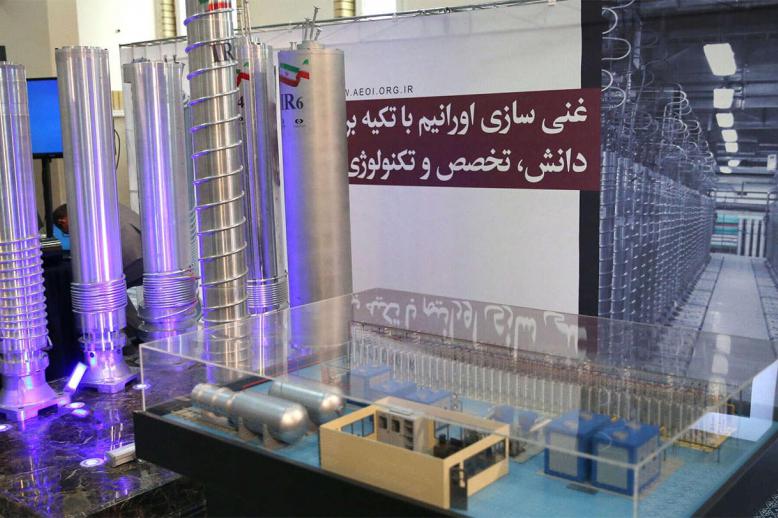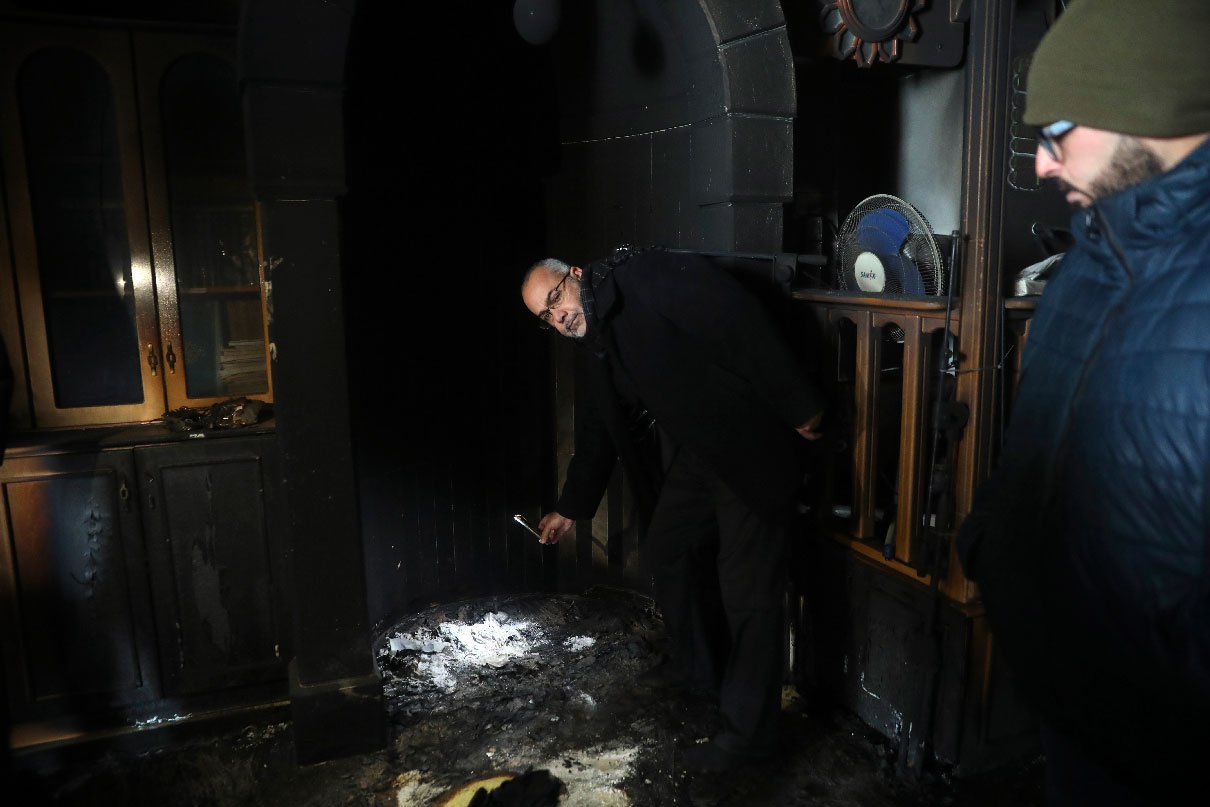Jewish settlers set fire to mosque in east Jerusalem
JERUSALEM - Israeli police launched a manhunt Friday after an apparent arson attack, accompanied by Hebrew-language graffiti, on a mosque in Israeli-occupied east Jerusalem.
"Police were summoned to a mosque in Beit Safafa, in Jerusalem, following a report of arson in one of the building's rooms and spraying of graffiti on a nearby wall outside the building," a police statement said.
"A widescale search is taking place in Jerusalem," police spokesman Micky Rosenfeld said. "We believe that the incident took place overnight. We are searching for suspects."
The spokesman would not say if police viewed it as a hate crime. The graffiti, viewed by an AFP journalist, contained the name Kumi Ori, a small settlement outpost in the north of the Israeli-occupied West Bank. It read: "Destroying the Jews? Kumi Ori will destroy the enemy!"
The Times of Israel newspaper said Friday that the wildcat outpost "is home to seven families along with roughly a dozen extremist Israeli teens".
"Earlier this month security forces razed a pair of illegally built settler homes in the outpost," it reported. The Israeli government distinguishes between Jewish settlements that it has approved and those it has not, but all settlements on occupied Palestinian land are considered illegal under international law.
The paper said that "a number of young settlers living there were involved in a string of violent attacks on Palestinians and (Israeli) security forces."
Police said that nobody was injured in the mosque incident.
The attack had the appearance of a "price tag" attack, a euphemism for Jewish nationalist-motivated hate crimes that generally target Palestinian or Palestinian-Israeli property. These are sometimes carried out in revenge for attacks against Jews by Palestinians, but happen mostly in response to Israeli government moves against "unauthorised" outposts like Kumi Ori.
Multiple such attacks in recent months have featured graffiti mentioning Kumi Ori.
"This is price tag," Israeli Arab lawmaker Osama Saadi said at the scene.
"The settlers didn't only write words, they also burnt the place and they burnt a Koran," said Saadi, who lives in the area. There was damage to an interior prayer room but the structure was unharmed.
The Palestinian Ministry of Religious Affairs called the attack a “heinous crime which is evidence of the brutality of the Israeli racist incitement machine towards Islamic and Christian sanctities in Palestine.”
Adel Salah, a resident of the nearby Sharafat neighborhood, told Israel's Ynet news website, "We are a very quiet neighborhood, many Jews come here and leave and it's all fine. The mosque didn't bother anyone. I don't understand what the mosque did to them."
He added that Jewish settlers had previously carried out attacks in the area, causing damage to "cars and property" belonging to Palestinians.
In December, more than 160 cars were vandalised in the Shuafaat neighbourhood of east Jerusalem with anti-Arab slogans scrawled nearby.
The slogans read "Arabs=enemies", "There is no room in the country for enemies" and "When Jews are stabbed we aren't silent".
The attackers were described by a local resident as "masked settlers."

